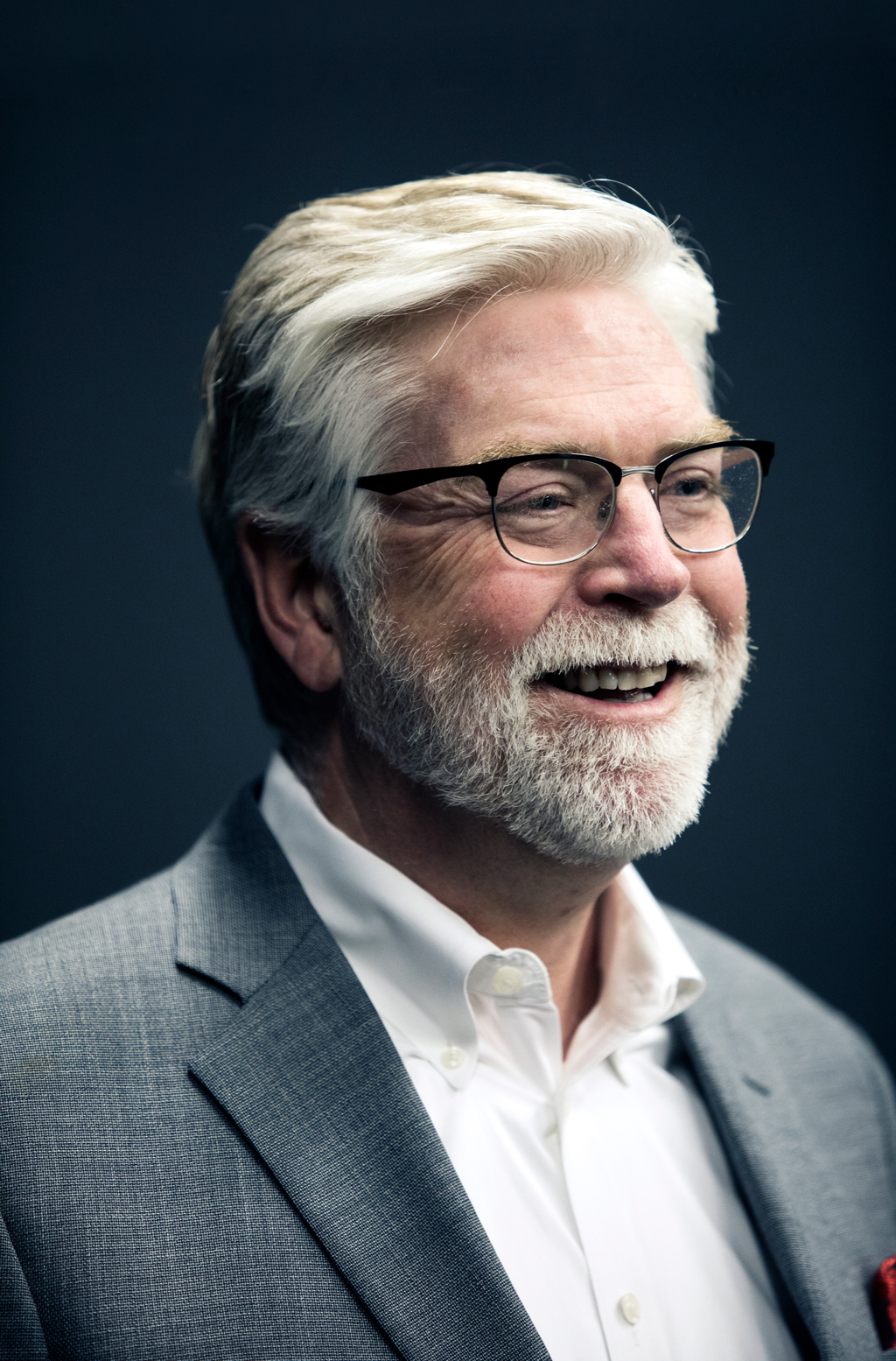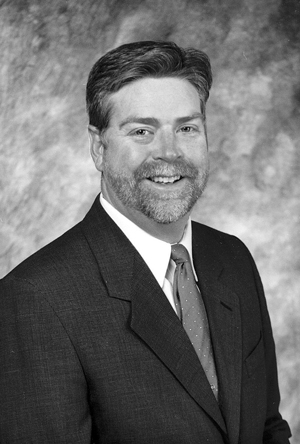These were the first words I ever heard about R. Albert Mohler Jr.: “He’s a dandy! You will love him! He’s your age!” Evangelist David Miller, a dear friend of mine, was a trustee officer for The Southern Baptist Theological Seminary and a foot soldier in the denominational struggle now known as the Conservative Resurgence. He had called me that day in 1993 to tell me the news that the 33-year-old had just been announced as the Board of Trustees’ choice to serve as the ninth president of the oldest — and most notoriously liberal — seminary of the Southern Baptist Convention.
David gleefully emphasized the president-elect’s astounding youth but also his astonishing brilliance. He was a graduate of Southern, he explained, but one who, shockingly, actually believed the Abstract of Principles, “including,” he added with special delight, “Article V on ‘election.’”
The news was as difficult to believe as it was welcome. I was pastoring the Ashland Avenue Baptist Church in Lexington, Kentucky, a church that had withdrawn from participation in Southern Baptist life in the 1970’s, largely due to the neo-orthodox views promulgated by the professors of Southern Seminary. I, on the other hand, had been influenced and shaped by the great grizzled conservative warriors of the convention, men like W. A. Criswell, Jerry Vines, and Adrian Rogers. I very badly wanted to coax my church back into the SBC to shoulder part of the vital burden of denominational reclamation, but the effects of Southern Seminary on Kentucky churches presented an impossibly high obstacle for my leadership. Stories of fresh-faced young preachers matriculating at Southern Seminary only to have their confidence in the Bible eroded and the cherished doctrines of the people who sent them assailed were commonplace. The Bible-believing people of my church would never join a denomination that tolerated, let alone supported, so persistent an assault on orthodoxy.

The moderates despised him because he had come through their system, yet he ultimately refused to become like them.
Still, David had filled me with hope that things might actually change, so I got the phone number at the Christian Index where he was editor and called Dr. Mohler. I can only imagine the apprehension he felt as he took my call. Hardly anyone in Kentucky was happy at his election. The moderates despised him because he had come through their system, sitting under their most elite teachers, yet he ultimately refused to become like them. Conservatives were doubtful that it was even possible to come through Southern unscathed and doctrinally pure. Professors had so routinely signed the Abstract without sincerely believing or teaching it, that it cast a pall of suspicion on Dr. Mohler, too, and he knew it. He could only have answered my call with some reservations.
I quickly explained who I was, where I pastored, and a bit about my background, then I said, “I wanted you to know that at least one pastor in Kentucky is glad you are coming.”
The genuine kindness and warmth of his answer immediately impressed me. The ensuing conversation was the first of many times he shocked me with his knowledge of things one could not reasonably expect him to know. He was very familiar with my church’s, Ashland Avenue’s, history and completely appreciated the strange no-man’s land we occupied, neither a part of the Independent Baptist movement nor welcome in the SBC in the state whose pulpits were dominated by Southern graduates.
Neither of us could have imagined the way our lives would intertwine for the next 25 years. We did not meet in person until June of 1996, three years into his tenure. David Miller introduced us in New Orleans at the annual meeting of the Southern Baptist Convention. I knew the tremendous personal price he was paying. He had faced faculty revolt, student protests, media assault, and general hatred. The Louisville Courier-Journal and the Kentucky Baptist paper, Western Recorder, had reported on the turmoil at the seminary and the subsequent decline in enrollment. A 1995 documentary, Battle for the Minds, won numerous awards as it accused Dr. Mohler of being an opportunistic autocrat with an insatiable appetite for power.
Paradoxically, all of these spasms of denominational schism laid the groundwork for me to convince Ashland Avenue to re-engage with the Southern Baptist Convention. I would regularly inform them about what changes this stalwart and faithful seminary president was making. These battles were tangible evidence that the denomination was changing, that the liberalism that had precipitated our exit was quickly disappearing.
When Mohler shook my hand in New Orleans, he told me that he wanted me to preach in chapel. After the convention, he issued the formal invitation to come preach and to have lunch with him in October. The irony of the pastor of Ashland Avenue and a graduate of Mid-America Baptist Theological Seminary preaching in the chapel of Southern Seminary was lost neither on me nor on the members of Ashland Avenue.
At lunch that day, joined by Dr. George Martin, one of the first conservative professors to throw his lot in with Dr. Mohler and teach at Southern Seminary, I asked Dr. Mohler a question: “Who are you going to get to teach preaching?” I shared my opinion that whoever he hired to teach preaching would define his presidency perhaps more than any single faculty position. (I’m not sure that’s true, but I thought it then and said so.) I told him that making expository preaching the norm at Southern was essential.
As I shared this opinion, nothing in me thought that I should be that person. It was unthinkable for several reasons: My church was growing wildly. We were currently in a legal battle with the city of Lexington for the right to relocate to a 47-acre campus we were purchasing. I had no thought of leaving the church I loved and in which I was enjoying the blessings of God’s favor. Furthermore, my training and doctorate was in Greek and New Testament, not preaching. Though preaching was my first love and the reason I had studied language and exegesis, I had never even thought about teaching preaching professionally.
I invited Dr. Mohler to come to Lexington and preach for me at Ashland Avenue the following Sunday night. It was spur of the moment, but I wanted the church to meet the man whom God had used to move the church back into SBC life.
At lunch I invited Dr. Mohler to come to Lexington and preach for me at Ashland Avenue the following Sunday night. It was spur of the moment, but I wanted the church to meet the man whom God had used to move the church back into SBC life. When Dr. Mohler arrived that evening, he was delighted to find a church packed out on a Sunday night and filled with vibrant worship. On behalf of the church, I presented him with a portion of a Spurgeon sermon manuscript as a gift to thank him for all that he was doing — a manuscript still proudly displayed in his study. My wife Tanya and I took him out to a restaurant after and enjoyed his company immensely. He and I had grown up in two very different branches of the Baptist family but found ourselves providentially thrown together in a unique moment in denominational history. I liked this guy and believed he could be one of the most important evangelical figures in our generation.
I began to pray for him, and as I began to pray for him, I began to share his vision and burden. As I felt the burden, I had a thought that seemed terribly out of place: “What if I went to Southern and taught preaching?” In addition to my lack of an academic degree in preaching, the most obvious obstacle was that Dr. Mohler had not asked me or even hinted at such a thing. I couldn’t invite myself to join the faculty at Southern, and I was loath to leave a church that loved me and where so many good things were happening.
After months of this unsettled feeling, I dared to send Dr. Mohler an email on the day after Christmas, 1996. I explained that I knew how strange this was, that I was neither making a commitment nor was I asking him for one, but I asked the simple question, “What do you think about the possibility of my coming to Southern to teach preaching?”
 Five minutes after sending the email, my phone rang, and Dr. Mohler was telling me, “You aren’t going to believe this, but I have been thinking exactly the same thing.” We agreed to pray about it and talk further. Over the next three months, I would speak to Dr. Mohler and to dean Danny Akin. History professor Tom Nettles had been my professor at Mid-America and had stayed in touch, and we discovered that both of us were talking to Dr. Mohler about joining the faculty at Southern.
Five minutes after sending the email, my phone rang, and Dr. Mohler was telling me, “You aren’t going to believe this, but I have been thinking exactly the same thing.” We agreed to pray about it and talk further. Over the next three months, I would speak to Dr. Mohler and to dean Danny Akin. History professor Tom Nettles had been my professor at Mid-America and had stayed in touch, and we discovered that both of us were talking to Dr. Mohler about joining the faculty at Southern.
On March 4, 1997, Dr. Mohler, Danny Akin, and I ate at an Italian restaurant in Louisville and talked specifics. Afterward, we went to Cave Hill Cemetery and visited the graves of the seminary’s founders, and Dr. Mohler told me he wanted me to help him restore John Broadus’ view of preaching to Southern. To say I was emotional is a profound understatement.
I came to Southern Seminary to join the great vision of biblical fidelity and doctrinal integrity that the ninth president was casting. He had been largely alone in those early years, but the 1997 class of new professors included Greg Wills, Tom Schreiner, Tom Nettles, Robert Stein, and myself. It was the largest class of new professors in Mohler’s tenure to date and also, as it turned out, one of the longest serving. I always enjoy pointing out that enrollment at Southern had been in decline from 1993 until the trend reversed in 1997. I know correlation is not causation, but … .
I look back at Dr. Mohler’s tenure at Southern with nothing less than awe at what God has done to his glory. Because God uniquely prepared and placed this stalwart, gospel-focused man in this place, because God gave him a backbone of steel and a clear vision of truth, faithful missionaries are serving around the world; pastors are boldly preaching the inerrant Word of God weekly from their pulpits; counselors confident in the sufficiency of Scripture are caring for souls; believing professors serving in colleges, universities, and seminaries are shaping the next generation for Christ.
I am honored to have served beside him for most of his tenure. I hope that I have blessed and multiplied his labors, but the last quarter-century of my life has been shaped by the influence of one man more than any other. I thank God for the life and legacy of my friend and leader, R. Albert Mohler Jr.
———
Hershael W. York is dean of the School of Theology at Southern Seminary and senior pastor at Buck Run Baptist Church in Frankfort, Kentucky.




